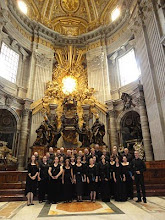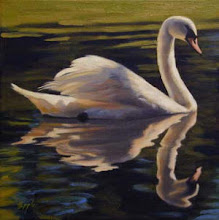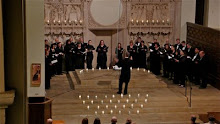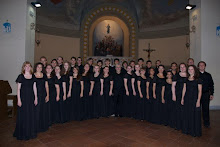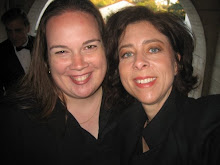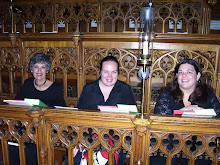
Sometimes I forget how much non-singing is a part of singing. Sometimes I would like to just memorize notes and words, The End. But I know that isn't doing justice to me, the composer, librettist/poet, or the actual song/aria/recit. etc. So here is what is required of me as a voice major before I can even think about singing.
1. Research in the music library, by composer, trying to find a song that is in my range, fits in a set for my recital, is in a language I don't already have too many selections in, appropriate subject matter (for some reason I have a LOT of songs about death but that can have something to do with my range. Most often romantic love songs are written for soprano/tenor)
2. Listen to said selections. Do I like it? Fast or slow (I tend to have too many slow, death remember?), does it have interesting moments, etc.
3. Check out the score and make copies. One for me double sided to not take up too much space in my binder, one for my voice teacher, double sided for the folder he keeps in his office, and one for my voice coach, single-sided taped together and hole-punched (he has to be able to stretch it out if playing for me in a recital etc).
4. Write in a word for word translation. I have dictionaries in German, Italian, French, and Spanish. I also like Google Translate. I have also taken a year of Italian and Three and 1/2 years of German and am taking a year of French this Summer.
5. Do a poetic translation. Sometimes these are printed in the score, sometimes you have to look them up and sometimes you have to make up your own from the word for word (which is sometimes very difficult)
6. Write in the IPA (International Phoenetic Alphabet). You have to be able to pronouce it correctly. IPA Source.com is a good resource as well as the rules learned in that language's diction class.
7. Practice reading the text in English poetically and to tempo rhythmically
8. Practice reading the text in it's original language poetically and to tempo rhythmically
9. Research the composer. Putting this piece in context.
10. Research the poet/librettist
11.Do a basic tonal analysis
12. What is the form?
13. Look at phrases. How many? Where do they start and end? Where am I going to breathe?
14. Study the dynamics and other markings from the composer
15.Study the accompaniment. Is there a dialogue between singer and piano, is the piano a character, what is the piano doing, how is it similar or different to the voice and WHY?
16. Create a dramatic interpretation. What do I want to communicate with the audience? How can I make it interesting? How can I show or explain that deceptive cadence? etc.
17. Listen to recordings by different performers. See their take on the same song.
18. Learn the notes and rhythm.
19. Practice with correct vocal technique while applying all of the above.
20. Sing for my teachers prepared to apply their counsel
21. Memorize Above
I'm sure I missed something that I'll remember later. I occasionally have to remind myself that I really do like music. I like practicing and doing all of the above. I love it in fact and couldn't stop if I wanted to. Some of the songs I have found are now a part of my soul. (I know it's corny). How can we keep from singing?






